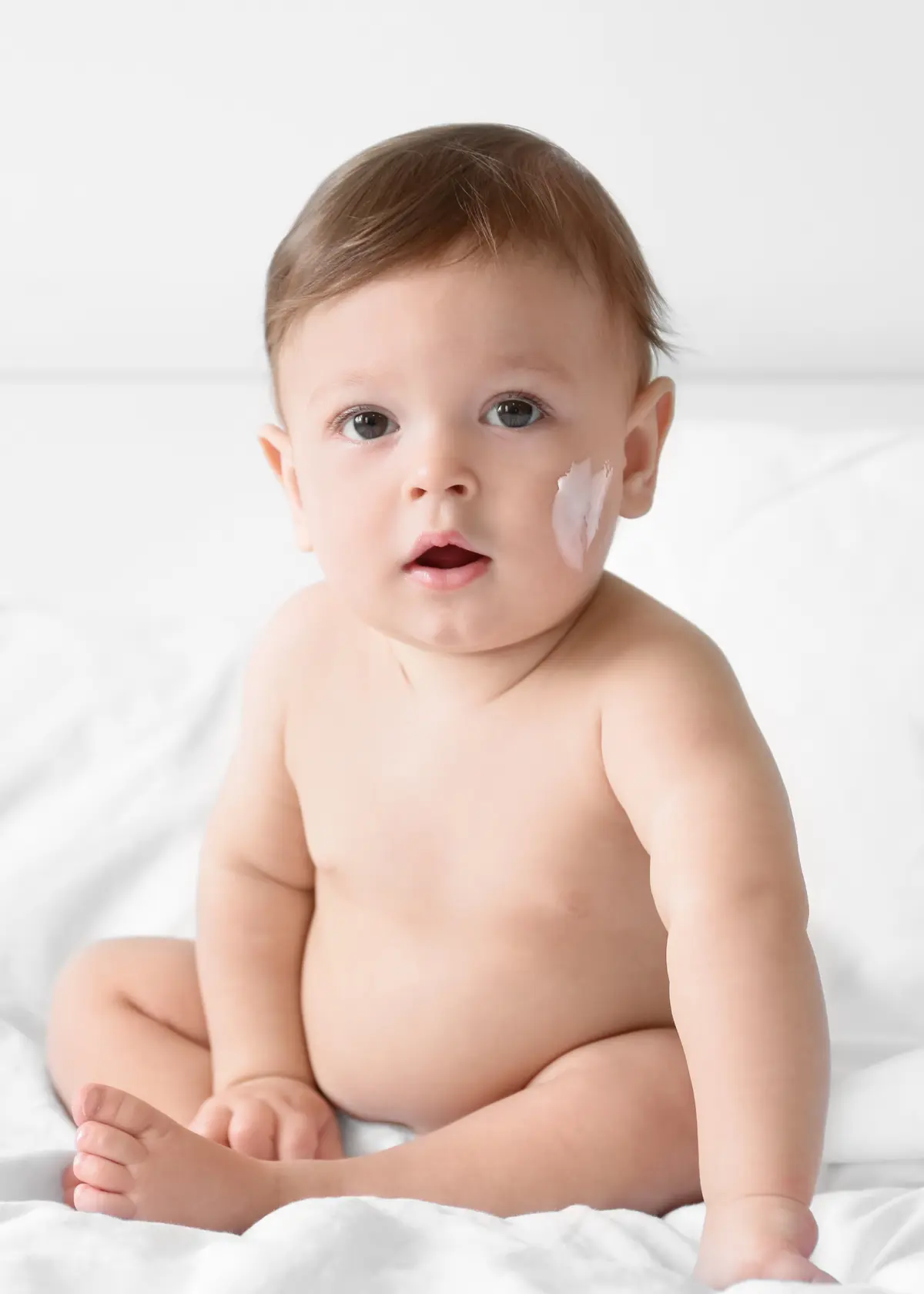As an individual keen on skincare, you may have pondered the wisdom of applying baby lotion to your own face. It seems straightforward: if it is gentle enough for a baby, surely it must be safe for an adult’s delicate skin. However, is this assumption valid, or does it merely perpetuate a myth that could lead to unwanted consequences? Let’s delve into the intricacies of baby lotion to ascertain whether this product is a boon or a bane for facial care.
At the outset, it’s essential to understand the composition of baby lotion. Typically, these formulations are designed with the tender skin of infants in mind. They are often hydrating and soothing, including ingredients like mineral oil, petrolatum, and various emulsifiers. While these ingredients can create a moisture-retaining barrier, their efficacy and safety on adult skin can differ significantly.
Firstly, consider the skin type in question. Adult skin varies widely, from oily to dry, sensitive to acne-prone. Baby lotion, while formulated for sensitivity, may not provide the specialized absorption and hydration that a specific skin type requires. For instance, if your skin is oily, the occlusive nature of baby lotion may exacerbate your skin condition by promoting acne and clogged pores. While baby lotion could initially provide a soft, moisturized feel, over time, it may lead to an imbalance in your skin’s natural oil production.
Conversely, if you have dry or combination skin, the emollient properties of baby lotion might be more beneficial. The rich, creamy texture could offer a soothing balm-like effect, especially in harsh weather conditions that drive skin to a state of dehydration. However, this potential benefit must be weighed against the risk of irritation. Though baby lotion is touted for being hypogenic, every individual’s skin reacts uniquely to various compounds. Even seemingly innocuous ingredients can provoke an adverse sensitivity, leading to rashes, redness, or a burning sensation.
Another aspect worth exploring is the lingering question of fragrance. Many baby lotions are available in a fragrance-free variety, designed not to overwhelm an infant’s olfactory senses. That being said, some versions do contain added fragrances for aesthetic appeal. These fragrances can be a double-edged sword; while they may appeal to your senses, they also increase the likelihood of irritation or allergic reaction in sensitive adult skin. One might argue: if you are addressing your skincare needs, why risk exposing yourself to chemicals that can provoke a reaction?
Thus, it is pertinent to consider your current skincare regimen. Are you already incorporating other products that fulfill the role of a moisturizer? Or are you introducing baby lotion as an impromptu solution? Layering products can be tricky, and they may not always work harmoniously. For instance, if you use a retinoid or alpha hydroxy acid, the occlusive nature of baby lotion could hinder absorption, thereby diminishing the benefits of these potent ingredients designed to target texture and wrinkles.
Additionally, we must scrutinize the role of hydration versus active ingredients. While baby lotion may indeed hydrate the skin’s surface, it lacks the active ingredients found in most adult-targeted moisturizers—like hyaluronic acid or ceramides—which are essential for long-term skin health. Without these functional additives, you might find yourself falling short of your skincare goals.
Moreover, consider the economic aspect. Baby lotion may be marketed as a budget-friendly alternative to fancy moisturizers, but how does it compare in terms of cost-effectiveness? The verdict here lies in whether it meets individual needs without causing adverse reactions. It may be worth investing in a dedicated facial moisturizer if it means better compatibility with your skin type and long-term improvement in skin condition.
Should you decide to experiment, it is prudent to conduct a patch test. Dab a small amount of baby lotion on a discreet area of skin, such as your wrist or behind your ear, and observe any reactions over the next 24 hours. This simple yet crucial step can save you from the frustration of a full-face application resulting in irritation.
Ultimately, the dilemma of applying baby lotion on your face is not simply a black-and-white issue. Whether it is right or wrong hinges on various factors—skin type, the presence of other products, potential for irritation, and specific skincare goals. Rather than accepting baby lotion as an all-encompassing solution for skin hydration, approach it as a potential option while remaining conscious of its limitations.
In conclusion, while baby lotion may provide a soft and soothing effect, caution should reign supreme. Evaluate your skin’s needs, consider your existing routine, and weigh the pros and cons before opting for this seemingly harmless product. After all, your skin deserves tailored care, and a one-size-fits-all approach rarely yields the best results.
Challenge conventional wisdom, and be discerning in your approach. The choice of what goes on your skin should be informed, deliberate, and above all, individualized for optimal skincare outcomes.

